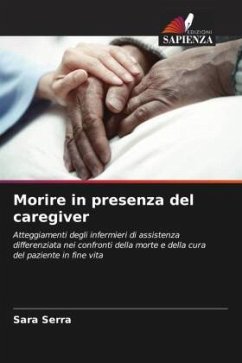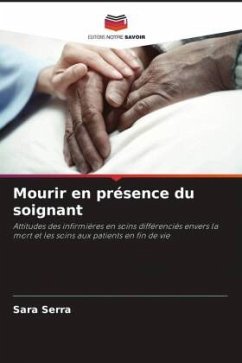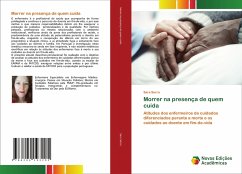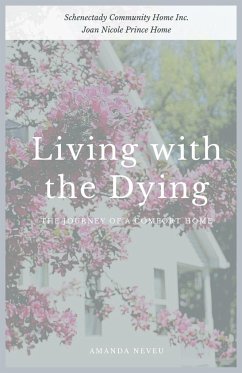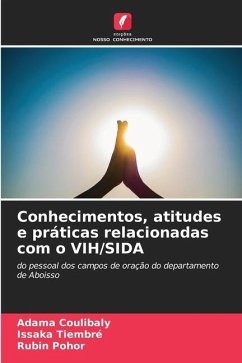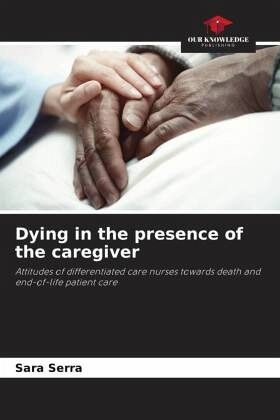
Dying in the presence of the caregiver
Attitudes of differentiated care nurses towards death and end-of-life patient care
Versandkostenfrei!
Versandfertig in 6-10 Tagen
41,99 €
inkl. MwSt.

PAYBACK Punkte
21 °P sammeln!
The nurse is the health professional who monitors, in a privileged and continuous way, the path of the patient at the end of life, and for this reason the one with the greatest responsibilities in ensuring the provision of personalized and quality care. For personal, professional reasons or even those related to the institutional environment, there is still a predominance of paternalism on the part of health professionals towards the end-of-life patient, avenging the conspiracy of silence around their prognosis and clinical situation, and the attitudes of escape and avoidance in relation to th...
The nurse is the health professional who monitors, in a privileged and continuous way, the path of the patient at the end of life, and for this reason the one with the greatest responsibilities in ensuring the provision of personalized and quality care. For personal, professional reasons or even those related to the institutional environment, there is still a predominance of paternalism on the part of health professionals towards the end-of-life patient, avenging the conspiracy of silence around their prognosis and clinical situation, and the attitudes of escape and avoidance in relation to the care of the patient and family. In Portugal, research on this topic is still in its infancy, and there is no scientific evidence regarding nurses' attitudes towards death and end-of-life patient care. The present descriptive-correlational study was carried out with the objective of analyzing the attitudes of differentiated care nurses about death and towards end-of-life care, using the EAPAM and FATCOD scales, to investigate the relationship between them and finally translate and validate the FATCOD scale for the Portuguese population.



